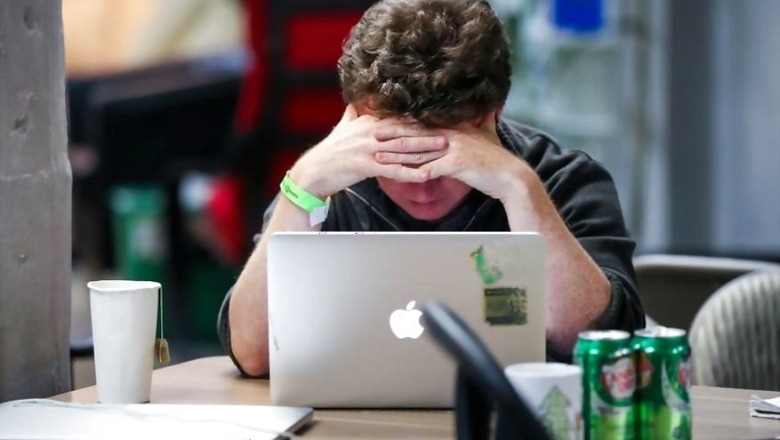
views
Anxiety is a normal and valid reaction to uncertainty and things that may harm us. For most of us, the COVID-19 illness has led to a lot of uncertainty and stress about our future. We are worried about our own health and the health of our loved ones. We may also have concerns around work or academics, our finances, our ability to take part in community and social events and hobbies, and other important parts of our lives. To make matters feel even more out of control, this seems like an extended season of uncertainty that we may need to deal with.
Suggested are some simple and healthy coping strategies to help you manage this worry or stress that you may be feeling by focussing on what you can control.
Acknowledge Your Feelings
Allow yourself time to notice and express what you’re feeling rather than deny or bottle them up. This could be through maintaining a journal, talking with others, or doing something creative (e.g., drawing, painting, poetry). Meditation can also help to witness thoughts and feelings come and go in their own time, without getting overwhelmed by them.
Take Care of Yourself Physically
Eat a balanced diet, exercise regularly, get enough sleep to boost your immunity and feeling of well-being. Avoid unhealthy coping strategies such as use of alcohol, drugs or smoking to manage worry which in turn can further weaken physical and mental health.
Maintain Your Day-to-Day Activities and a Routine
Having a routine where one stick’s to roughly the same time for activities like waking up and bed time, meals, exercise, social connects and hobbies can have a positive impact on thoughts and feelings. During this time of change, it's natural for our minds to think of all the usual activities we may not be able to do at the moment.
Make a conscious shift to focus on the activities we are still able to do, such as read a book, listen to a podcast, try out a new hobby or skill (e.g., cook a new recipe, play an instrument, learn a language, learn how to sew, gardening).
Stay Emotionally (If Not Physically) Connected
Receiving support and care from others has a powerful effect on helping us cope with challenges and can bring a sense of comfort and stability. There are many ways we can use technology to stay connected, and both give and receive support (remotely). You could call, text, or video-chat with friends and family.
Putting Things in Perspective
In a situation that’s uncertain, it’s natural to have many ‘what if?’ questions in our minds. In the absence of information, our anxious mind will imagine the worst case scenarios, which can leave us feeling overwhelmed, helpless, or vulnerable. Here are some questions one can ask to shift thinking from catastrophizing to a more helpful mindset:
What are the things within my control?
Am I overestimating the likelihood of the worst-case scenario?
What strategies have helped me cope with challenging situations in the past that will serve me well during this time?
What am I telling myself that is making me feel this way?
Do I really want to stay stressed?
Set Limits Around News and Social Media
It’s understandable to want to keep informed and be prepared. At the same time, constantly reading, watching, or listening to upsetting media coverage can unnecessarily intensify worry and agitation. Schedule a specific time to check in with the news instead. It's also okay to take breaks from conversations with others about COVID-19 and suggest talking about other topics.
Seek Extra Help or Support
There are some signs that indicate you need extra help and support:
- You have a hard time eating or sleeping well
- You experience physical symptoms like frequent headaches, chest pain , palpitations an upset stomach
- Negative thoughts, irritability, mood swings or feeling very low or on edge all the time, and thoughts of impending doom.
- Constant obsessive, thoughts that cannot be controlled or stopped with regards to the virus, like - contracting it, getting quarantined in even more terrible conditions, spreading it to others, fear of self or loved ones dying, and anxiety about not having access to investigations or treatment.
- Thoughts that this life is not worth living with all the uncertainty about the future and a better way out is to take one’s own life.
All this can lead to repetitive behaviour that includes constant-checking, cleaning, hoarding (items for the house, face mask, medication, hand sanitisers), increased hand-washing/bathing, or obsessive reading and watching TV, news, browsing social media or the Internet for further information on the topic.
At this point, one may want to consider tele-health or e-health services. Many psychologists or counsellors are providing online sessions at this point which can be availed.
It really is important right now for people to realise that this is new for everyone and that there is no manual on how you manage a pandemic. Each of us require different types of self-care and healthy ways to cope and it will be our own personal journey to do the best we can in our circumstances.
















Comments
0 comment